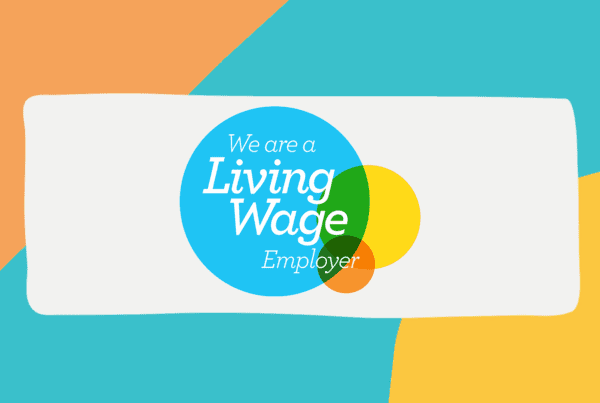International Women’s Day is a worldwide event celebrating the social, political and cultural achievements by women. To celebrate the occasion, we talk to one of Postworks’ successful product managers, Hannah Day, who discusses gender in the workplace, her own benchmarks of success and what she wishes she knew at school.

PRODUCT MANAGER
What did you do before you were a Product Manager at Postworks?
My background has always been client facing and followed a sales then account management path to account director level.
When I came back from maternity leave 8 years ago, I had to take on a new role where the main products my team were selling were quite unloved and forgotten about. It gave me the opportunity to start asking questions and championing getting improvements put in place. This was my first introduction to Product Management and I’ve been passionate about it ever since.
What has been the highlight of your career so far?
Good question. I left school with a handful of GCSEs and no professional qualifications not knowing what I was going to do in the world having spent the last 10 years being convinced that I would be a brain surgeon. I worked through different roles and it’s got me to the where I am now.
Now is the highlight because I’m doing a role that I love.
What do you wish you had known before starting out?
When I started getting involved in product management, I wasn’t aware, or conscious of Product Managers. I didn’t know that I was being a Product Manager, I was simply trying to make things better for my customer and my team.
Product management jobs have been around for such a long time but it’s still not a role that a lot of organisations have, and it still feels quite new within companies and as such there are really broad expectations. Some organisations really just want Project Managers, others Business Analysts, but it’s a really important role especially in a fast-paced industry like software.
I think at the beginning I didn’t realise quite how many things a Product Manager has to juggle.
We are receiving input from so many sources; the sales team; customer services, technical support, data from the product, customers directly… this list goes on.
Then there is the management of priorities in the ever changing world of development especially if your working on a more Agile development framework.
Going back to the question, I would have just liked to have known about this type of role and the skills I need to be a success and then how I could get a foot in the door.
What is the most challenging thing about being a female in product management?
Just people taking you seriously and without coming across as a broken record, this is within most industries where you hit a certain level and I just don’t get it.
So often you get asked questions about marriage and family and you can read between the lines about whether they are considering when you’re going to have the next baby or requests for flexible working are met with an assumption that you are going to work fewer hours or not put as much effort in as the 9 – 5ers; it’s crazy in this day and age.
I don’t have any technical qualifications and I don’t come from a software development background but in many ways that’s a good thing because I can take a step back and think about it from a project level and as customer, and have that balance. But I do think that the software world is still very male orientated. There needs to be a better balance and have more women in development and support roles.
Organisations need to change the way they think about flexible working to support more women in business and culturally we need to look at how women, especially those with families, are seen within the workplace.
It seriously shouldn’t matter whether I’m male or female, silver or purple, I’m a Product Manager and I’ll be the best that I can.
How do you think businesses can contribute to closing the gender gap in technology for female product managers?
It’s a difficult one. I’m quite a big advocate of trying to not put gender in the way of things or using gender as an excuse. It should never be an excuse and businesses shouldn’t really look at who they’re employing on the back of what their gender is. However, there are roles that are generally more heavily populated by guys and they tend to be very much around the development side.
A lot of people that get into Product Management have evolved from these roles, whereas I think businesses should be looking in different areas, looking at people who have been more client facing because it’s ultimately the client who uses the software, not the developer.
Also, as I mentioned before, I think organisations need to be really open to flexible working. It’s really critical, especially to drive more women into the workplace and a variety of roles. Offering flexibility means you get more productive employees (both men and women) who are more dedicated to the roles and business.
What advice would you give to another aspiring female Product Manager?
Keep going. People seem to have a bit of a complex about there being issues with men and women and the workplace. You have to put those aside and approach everything thinking “I am an equal, I know what I’m talking about, I’m a professional and this has got nothing to do with gender”.
Empower yourself and say, “I can do this, I am going to do this, regardless of the circumstances and who’s involved.” Everyone’s got dreams; you just need to follow them and if someone isn’t interested in you because you are female then walk away and find an organisation that will, because they are out there and they are the ones that are benefiting from all of these amazing women.
Postworks are really proud to be an employer that supports flexible working and as part of our company mission ‘to be a pleasure do do business with’, we are passionate about extending that to the working environment and culture that we create here.
Postworks Ltd

